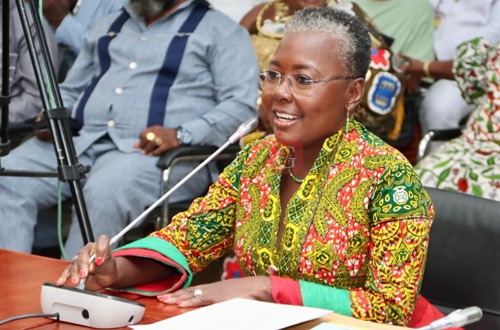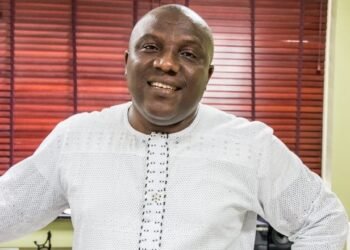Ghana’s efforts to build a blue economy have taken a major step forward with the announcement of plans to establish a national Blue Economy Commission.
The Minister for Fisheries and Aquaculture Development, Hon. Emilia Arthur, disclosed this development during her address at the Government Accountability Series on Wednesday, August 6, 2025.
In alignment with a key promise in the government’s manifesto, she confirmed that the cabinet has granted approval for the creation of an inter-ministerial and inter-sectoral technical team.
This team has been tasked with formulating a national strategy that will shape Ghana’s long-term approach to ocean governance, marine resource management, and related sectors.
“The team, supervised by the senior presidential advisor on governmental affairs, Dr. Valerie Sawyer, and hosted by the Ministry of Environment, has delivered on their task of developing the basis for a national blue economy strategy and recommended the institutional and legal frameworks required for implementation.”
Hon. Emilia Arthur
Hon. Emilia Arthur explained that the newly outlined strategy seeks to establish an integrated and coordinated governance system to guide the development and protection of Ghana’s marine and aquatic resources.

The goal is to manage these resources in a way that promotes long-term economic growth, ensures environmental sustainability, and fosters social inclusion.
The initiative is expected to deliver a unified and well-regulated framework that supports responsible and sustainable use of marine and aquatic assets, positioning the blue economy as a key driver of national development.
Blue Economy Commission To Oversee Ocean Sectors
Hon. Emilia Arthur also revealed that the Blue Economy Commission, or its future equivalent body, will serve as Ghana’s central agency responsible for directing policy, investment, and oversight across a broad range of sectors tied to ocean and marine resource use.
The envisioned commission is expected to operate across multiple sectors such as fisheries, maritime transport, coastal tourism, offshore renewable energy, and marine conservation.
By housing these policy areas under one strategic body, the government hopes to better coordinate national efforts and ensure Ghana reaps the full socio-economic and environmental benefits of the blue economy.

“Work is well underway, as I intimated earlier on, on Ghana’s first blue economy strategy, coordinated by an inter-ministerial team endorsed by the cabinet. This will provide a clear institutional and investment framework for sustainable ocean-based growth.”
Hon. Emilia Arthur
In addition to the governance framework, Hon. Arthur also announced several practical steps the government intends to implement as part of its ocean development agenda. One key area of emphasis is aquaculture.
The minister noted that targeted investments and interventions will be directed toward expanding aquaculture infrastructure and production capacity.
Specifically, she pointed to new initiatives that will support women and youth entrepreneurs in the aquaculture space, including programs to expand hatcheries, improve feed production, and enhance access to key inputs.
These investments are expected to reduce the country’s dependency on imported fish products while boosting domestic job creation and incomes.
Beyond job creation, these efforts are intended to build long-term food security and stimulate inclusive economic development in coastal and inland communities where fisheries and aquaculture serve as primary livelihoods.

The Minister concluded by reaffirming that the blue economy strategy is a bold step toward positioning Ghana as a leader in sustainable ocean development in Africa.
She emphasized the country’s commitment to protecting its marine ecosystems while unlocking new sources of growth, investment, and innovation.
As Ghana accelerates toward the establishment of its Blue Economy Commission, stakeholders from across government, industry, civil society, and the scientific community are expected to be engaged in the rollout of this policy framework.
The success of the strategy will depend not only on regulation but on collaboration, education, and innovation at all levels of implementation.
By embracing a structured and inclusive blue economy approach, Ghana is poised to turn its coastal and marine assets into engines of national development, aligning economic ambitions with environmental responsibility and social equity.
READ ALSO: Tullow Oil Reports $61 Million Loss in H1 2025 as Revenue and Oil Prices Slide



















